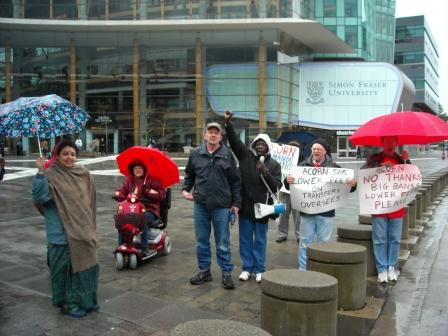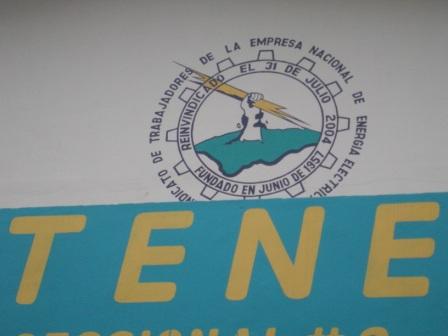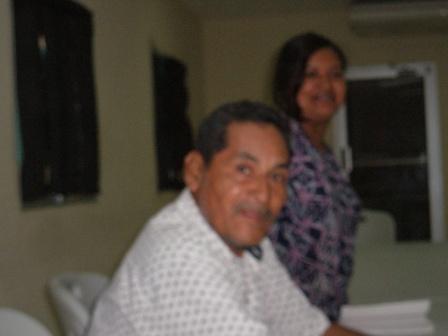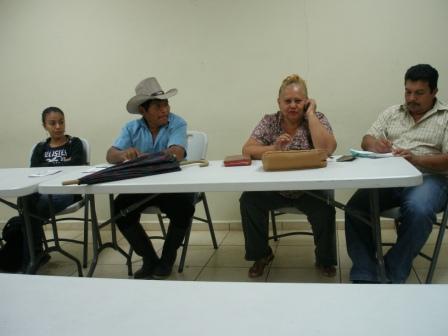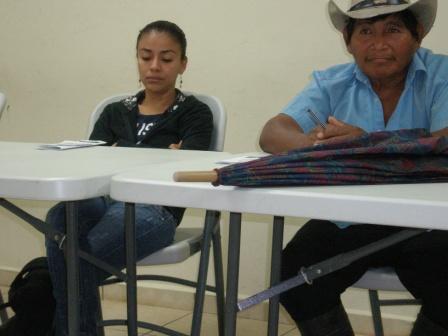Your cart is currently empty!
Blog
-
ACORN Kenya October 2010 Report
ACORN KENYA TRUST
OCTOBER REPORT 2010 7/11/2010
Introduction
The month of September 2010 saw a lot of energy and time directed towards the finalizing the analysis report on education situation in Korogocho.However,other areas of engagement were still going on as summarized bellow.
NO
ITEM
STATUS
ACHIEVEMENT
CHALLANGES
1.
Membership building
- Membership building in progress
- Acorn community strong and cohesive
- Highridge has attained a membership of 480.Atcive ones are 300.
They meet on monthly basis
- Kisumu Ndogo has 350 members. Active ones are 200.They meet on monthly basis.
- There is a demand from the other villages to engage them in organizing
- How to keep and sustain fire burning among Acorn members
- Majority of members not active
2.
Leadership building
- Leadership in both areas still ad hoc
- Highridge has 14 leaders. They meet twice per month.
- Kisumu ndogo has also 14 leaders who meet twice per month.
- Some leaders are yet to understand the principles, philosophy and concept of Acorn. They want to work and operate the NGO way.
3.
Dues
- Monthly dues collection in both villages still irregular
- Highridge collections in September 2400
- Kisumu ndogo collected 1600
- Majority of members can’t afford to pay the monthly dues because of extreme poverty.
4.
Capacity building
- Leadership training in both villages in progress
- Have training 24 Acorn community leaders in conflict management
- Good leadership.
- Lack of funds to carry more leadership training
- Ways to motivate leaders to own the ownership process of organizing
5.
Acorn registration
- Registration of the organization as Acorn Kenya Trust is in advanced stage
- The deed has been approved and the registration number is 2131
- The lawyer informed us that the process of acquiring the Certificates takes a longer period but with the approval of the Deed the Organization is now fully recognized.
6.
Field office
- The field office yet refurbished
- Managed to acquire a field office within the community
- The office needs to be fully refurbished.
7.
Account opening
- Opening the organizations account is in progress
- The organization has selected Kenya commercial Bank among other institutions as its bank
- Two bank signatories from the community have already been identified. One from Highridge and the other one from Kisumu ndogo
- One community member has not acquired a personal pin number which is one of the mandatory requirements in opening a bank account.
- This has delayed the process of opening the account.
8.
Issue based campaign
- The campaign on education is at advanced stage
- Held a stake holders forum on 25th September 2010.
- 50 people attended
- Disseminated information on education situation in Korogocho.
- The campaign on education is complex and of high conflict
Which way now?
The way forward from the stake holder’s forum is for Acorn Kenya Trust to hold village to village meetings share and get more information from the community. This will culminate into a big campaign covering the whole of Korogocho as shown in the campaign schedule.
EDUCATION CAMPAIGN
SCHEDULE OF THE ACTION PLAN
Village to village forums on education campaigns
- Target is 300 people per village
- Final campaign will target 2,500 people
village
Activities
Dates
Venue
Expected output
Requirements
KA
- Disseminate information on Education
- Plenary reactions
- Sharing personal experiences
- Way forward
16-11-2010
- Information on education disseminated to at least 100 people
- Recommendations on how to improve education in KA
- Real experience on the agony of accessing bursary fund
- Tactics and strategies designed on how to face the targets .
- Venue
- Seats
- Tea and snacks
- Air time for community mobilization
- Documentation and other materials
KB
- Disseminate information on Education
- Plenary reactions
- Sharing personal experiences
- Way forward
18-11-2010
- Information on education disseminated to at least 100 people
- Recommendations on how to improve education in KB
- Real experience on the agony of accessing bursary fund
- Tactics and strategies designed on how to face the targets.
- Venue
- Seats
- Tea and snacks
- Airtime for community mobilization
- Documentation and other materials
Kisumu Ndogo
- Disseminate information on Education
- Plenary reactions
- Sharing personal experiences
- Way forward
19-11-2010
- Information on education disseminated to at least 100 people
- Recommendations on how to improve education in Kisumu dogo
- Real experience on the agony of accessing bursary fund
- Tactics and strategies designed on how to face the targets.
- Venue
- Seats
- Tea and snacks
- Air time for community mobilization
- Documentation and other materials
Highridge
- Disseminate information on Education
- Plenary reactions
- Sharing personal experiences
- Way forward
18-11-2010
- Information on education disseminated to at least 100 people
- Recommendations on how to improve education in Highridge
- Real experience on the agony of accessing bursary fund
- Tactics and strategies designed on how to face the targets.
- Venue
- Seats
- Tea and snacks
- Air time for community mobilization
- Documentation and other materials
Grogon A
- Disseminate information on Education
- Plenary reactions
- Sharing personal experiences
- Way forward
16-11-2010
- Information on education disseminated to at least 100 people
- Recommendations on how to improve education in Grogon A
- Real experience on the agony of accessing bursary fund
- Tactics and strategies designed on how to face the targets.
- Venue
- Seats
- Tea and snacks
- Airtime for community mobilization
- Documentation and other materials
Grogon B
- Disseminate information on Education
- Plenary reactions
- Sharing personal experiences
- Way forward
19-11-2010
- Information on education disseminated to at least 100 people
- Recommendations on how to improve education in Grogon B
- Real experience on the agony of accessing bursary fund
- Tactics and strategies designed on how to face the targets.
- Venue
- Seats
- Tea and snacks
- Airtime for community mobilization
- Documentation and other materials
Gitathuru
- Disseminate information on Education
- Plenary reactions
- Sharing personal experiences
- Way forward
23-11-2010
- Information on education disseminated to at least 100 people
- Recommendations on how to improve education in Gitathuru
- Real experience on the agony of accessing bursary fund
- Tactics and strategies designed on how to face the targets.
- Venue
- Seats
- Tea and snacks
- Airtime for community mobilization
- Documentation and other materials
Whole of Korogocho
- Rally
- Memorandum
- Petitions
Korogocho community centre
- Venue hire
- Posters
- Airtime for mobilization
- T/shirts
- Refreshments
- Media coverage
- Documentation
Sammy Ndirangu
David Musungu
-
Support Letter from CUPW
Support letter from CUPW- the Canadian Union of Postal Workers- and it’s President joining our call for remittance regulation at the Provincial and Federal level in Canada.
CUPW Support LetterView more documents from ACORN International -
Support Letter from CUPW
A support letter from CUPW- the Canadian Union of Postal Workers- and it’s President joining our call for remittance regulation at the provincial and federal level in Canada. -
Article about our campaign on the Calgary News & Views
Bank fees ‘killing’ migrant workers: ACORN
‘We’re trying to end this predatory practise by the banks and financial agencies’
Published March 3, 2011 by Trevor Scott Howell in NewsAn international community-based, low-income advocacy organization is calling on the Canadian government to regulate the “predatory” remittance industry.
The Association of Community Organizations for Reform Now (ACORN) says the unregulated practise of charging up to 50 per cent for money transfers — a $400-billion industry according to the World Bank — is punishing migrant workers and immigrants, many of whom send money to their families back home.
“The remittance fee is killing us,” says Kay Bisnath, president of ACORN International. “Migrant workers’ and immigrants’ families depend on the money that their loved ones in Canada and around the world send to their homeland.”
Bisnath says banks and money transfer businesses can charge as much as 50 per cent in remittance fees. A migrant worker sending $100 to their family can be charged between $32 and $35 through the TD Bank, says Bisnath. “When you have to pay all these remittance fees, what are the loved ones left with?”
ACORN is calling for the Canadian government to limit the amount banks and financial institutions can charge to five per cent.
“We’re trying to end this predatory practise by the banks and financial agencies,” says Bisnath.
-
Reporte San Pedro Sula
San Pedro Sula reporte en espanol e Ingles.
San Pedro Sula report in Spanish and English.
ACORN International In. Honduras
Reporte 9, 2011
De Luis Martínez, San Pedro Sula Febrero 28, 2011
Durante el mes de Febrero se han desarrollado actividades con los objetivos de aumentar la membrecía de ACORN, preparar y realizar la Asamblea General de ACORN con todos los delegados municipales, así como dar seguimiento a la propuesta de Reforma a la Ley de Transferencia de Remesas. Sumado a esto ACORN continua estableciendo relaciones con organizaciones afines; de esta manera a lo largo de este mes se efectuaron 680 toque de puerta, 2 segundas visitas en la ciudad de Choloma y 2 acciones rápidas en los municipios de Choloma y San Pedro Sula respectivamente.
Actividades desarrolladas
a) Socialización e incorporación de nuevos miembros en Choloma.
b) Acompañamiento a la lucha por la defensa del servicio público de agua en Choloma.
c) Planificación y montaje de la Asamblea de ACORN.
d) Visita de Director ACORN a Honduras.
e) Socialización e incorporación de nuevos miembros en San Pedro Sula.
a) Socialización e incorporación de nuevos miembros en Choloma
Se ha concluido un proceso de organización comunitaria en uno de los sectores más prolíficos y con mayor potencial organizativos de Choloma, el mismo se ha desarrollado a través de la visita a 240 hogares del sector de las Pilas, del mismo modo esta misma actividad contempló 2 segundas visitas, teniendo como resultado la sensibilización de los pobladores sobre la problemática en cuanto a la necesidad de solventar dificultades concernientes a la exigencia de la no privatización del servicio de agua potable y el aumento del 70% en la tarifa del mismo en la ciudad de Choloma, así como la instalación de un adecuado sistema de alcantarillado en este Sector.
El resultado de estas acciones derivó en la incorporación de 5 nuevos miembros a ACORN, acrecentando la representación de estos en la comunidad en mención e incorporándose inmediatamente a trabajar conjuntamente con las organizaciones sociales de carácter popular del municipio.
b) Acompañamiento a la lucha por la defensa del servicio público de agua en Choloma.
A partir de la segunda mitad del mes de enero, las fuerzas sociales incluidas las bases de ACORN en Choloma han continuado conjuntamente un proceso de cabildeo, movilización, organización y presión a las autoridades locales para que desistan de su postura de privatizar el servicio de agua potable del municipio. Esta acción tuvo como principal catalizador el indiscriminado aumento del 70% a la tarifa de este servicio, por ende varios sectores sociales de base han emprendido esta lucha por preservar el servicio público y reducir tan arbitrario aumento.
Cabe destacar que en todas las asambleas convocadas por el movimiento, así como en las movilizaciones los miembros de ACORN han participado activamente, siendo los dirigentes de ACORN parte clave en la dirección de este movimiento a favor del agua potable pública y a bajos costos. Además cabe señalar que los miembros de ACORN incorporados a este proceso de lucha social han logrado emplazar a las autoridades municipales a través de los métodos de presión; sin embargo, estos funcionarios continúan renuentes a acatar el mandato popular.
c) Planificación y montaje de la Asamblea de ACORN
Durante los primeros 10 días del mes de febrero fueron convocados a través de reuniones e invitaciones personales los delegados a la Asamblea General de ACORN. Esta tarea consistió en gran medida en visitas personales a los diversos sectores donde existen bases de ACORN. Dichas actividades han generado la participación de varios miembros relativamente nuevos en ACORN para delegar cargos y ser delegados en la nueva Junta Directiva.
Por otra parte, en gran medida nuestro trabajo ha consistido en facilitar los espacios organizativos así como el de establecer los vínculos necesarios para el montaje de la Asamblea General. Consecuentemente dicha Asamblea se desarrolló en la sede del Sindicato de Trabajadores de la Empresa de Energía Eléctrica STENEE, organización aliada a ACORN; no obstante pasada la discusión de la agenda, se procedió a medir el quórum y posteriormente a desarrollar los diversos puntos de agenda.
La principal dificultad en este proceso se verificó al momento de integrar la nueva Junta Directiva Nacional, ya que los representantes delegados de Tegucigalpa se ausentaron y por razones meteorológicas de lluvia diversos delegados tanto de San Pedro Sula como El Progreso no pudieron asistir a la misma. Por esta razón los miembros presentes acordaron posponer la elección de la nueva junta directiva para el 12 de Marzo, fecha todavía pendiente de aprobación.
d) Visita de Director ACORN a Honduras.
Desde el 11 de febrero y hasta el 15 del mismo mes el Director General de ACORN International Wade Rathke acompañó en una gira por diversos espacios organizativos de ACORN en el Valle de Sula. En primera instancia el día 11 fue presentado el libro “Riqueza Ciudadana” en la Universidad Nacional Autónoma de Honduras UNAH-VS ante grupo de estudiantes, profesionales y activistas sociales directamente involucrados en la gestión de ACORN en la región.
Posteriormente Wade Rathke fue invitado a participar en el desarrollo de la Asamblea General, donde los miembros intercambiaron experiencias con él y se plantearon ciertas estrategias para continuar desarrollando el trabajo organizativo y de presión ante las autoridades locales.
Además participó en el desarrollo de una numerosa Asamblea Sectorial en la colonia 6 de Mayo del sector Rivera Hernández en San Pedro Sula, conociendo de primera mano la problemática vinculada a la carencia y mal servicio de agua potable que sufren gran parte de la población que habita esta marginal zona de la ciudad. Consecuentemente se llegó a conclusiones muy favorables a los intereses de ACORN, debido a que varios líderes de la zona optaron en incorporarse a nuestra organización.
e) Socialización e incorporación de nuevos miembros en San Pedro Sula.
Derivado de la visita antes mencionada y producto del trabajo organizativo realizado desde el año anterior, en el mes de febrero gracias a 440 toques de puerta y una acción rápida logramos incorporar 8 nuevos miembros a ACORN. Los mismos se incorporan con la expectativa de generar un movimiento de presión social capaz de incidir en la pésima gestión de la concesionaria Aguas de San Pedro ASP, quien desde 2001 ejecuta el monopolio del servicio de agua y alcantarillado en este municipio.
El principal reclamo de los pobladores de este marginal sector de la ciudad es el mejoramiento de la calidad del servicio de agua potable, razón por la cual decidieron adherirse a ACORN para conjuntamente entablar acciones contundentes en contra de ASP para que el servicio de agua sea mejorado.
During the month of February we have been active with the objectives to increase ACORN membership, prepare and conduct the General Assembly of ACORN with all municipal delegates, as well as monitoring the reform proposal to the Remittance Transfer Act. Added to this ACORN continues to establish relationships with related organizations, in this way throughout this month made 680 port calls, 2 second places in the city of Choloma and 2 fast action in the municipalities of San Pedro Sula Choloma and respectively.
Activities developed
a) Socialization and incorporation of new members in Choloma.
b) accompany the struggle to defend public water service in Choloma.
c) Planning and installation of the Assembly of ACORN.
d) Visit of Director ACORN to Honduras.
e) socialization and incorporation of new members in San Pedro Sula.a) Socialization and incorporation of new members in Choloma
Has completed a process of community organization in one of the most prolific and most promising organizational Choloma, it has developed through visits to 240 homes Batteries sector, just as the same activity contemplated 2 second visits, resulting in sensitizing people about the problems regarding the need to solve problems concerning the requirement of non-privatization of drinking water and 70% increase in the rate of it in the city Choloma, and the installation of a proper sewerage system in this sector.
The result of these actions resulted in the addition of 5 new members to ACORN, increasing the representation of those in the community in question and immediately getting up to work together with social organizations of popular character of the municipality.b) accompany the struggle to defend public water service in Choloma.
From the second half of January, the social forces including ACORN Choloma bases have continued along a process of advocacy, mobilization, organization and pressure on local authorities to desist from their position to privatize the water service municipality’s drinking. This action was a major catalyst of the indiscriminate increase of 70% to the price of this service thus several basic social sectors have taken this fight to preserve the public service and reduce as arbitrary increase.
Note that in all meetings convened by the movement, as well as demonstrations of ACORN members have been active, with the leaders of ACORN key part in the direction of this movement for public drinking water and at low cost. It is also noted that members of ACORN incorporated into this process of social control have been notice to the municipal authorities through the methods of pressure, however, these officials are still reluctant to obey the popular mandate.
c) Planning and installation of the Assembly of ACORN
During the first 10 days of February were summoned through meetings and personal invitations delegates to the General Assembly of ACORN. This task was largely on personal visits to the various sectors where there are bases of ACORN. These activities have led to the participation of several relatively new ACORN members to delegate positions and be delegated to the new Board.
Moreover, our work largely has been to facilitate organizational spaces as well as establishing the necessary links for the assembly of the General Assembly. Consequently the Assembly was held at the headquarters of the Union of Workers of Electric Power STENEE, organization allied with ACORN, however after the discussion of the agenda, were measured and then the quorum to develop the various agenda items.
The main difficulty in this process is verified at the time of integrating the new National Board, as representatives of Tegucigalpa delegates were absent due to weather and rain several delegates from both San Pedro Sula and El Progreso could not attend the meeting. For this reason, the members present agreed to postpone the election of new board for the March 12, the date still pending.
d) Visit of Director ACORN to Honduras.
From February 11 until 15 the same month the Director General of International Wade Rathke ACORN accompanied on a tour of various organizational spaces of ACORN in the Valle de Sula. In the first instance on 11 was presented the book “Wealth of Citizens” at the Universidad Nacional Autonoma de Honduras UNAH-VS with group of students, professionals and social activists directly involved in the management of ACORN in the region.
Wade Rathke was subsequently invited to participate in the development of the General Assembly, where members shared their experiences with him and raised a number of strategies to further develop the organizational work and pressure on local authorities.
He participated in the development of a large colony Sectoral Assembly on May 6 Rivera Hernández sector in San Pedro Sula, knowing firsthand the problems linked to poor service and lack of drinking water suffered much of the population living this marginal area of the city. Consequently findings were very favorable to the interests of ACORN, because several leaders in the area chose to join our organization.
e) socialization and incorporation of new members in San Pedro Sula.
Derived from the above product and visit the organizational work undertaken since the previous year in the month of February, thanks to 440 port calls and swift action we incorporate 8 new members to ACORN. They are incorporated with the expectation of generating a movement of social pressure can influence the mismanagement of the concessionaire Aguas de San Pedro ASP, who since 2001 running a monopoly on water and sewer service in this county.
The main complaint of the residents of this marginal sector of the city is improving the quality of drinking water, which is why they decided to join together ACORN to engage in decisive action against ASP for water service to be improved .
Cuadro de Actividades del
Mes de Octubre
Fecha
Toque
de Puerta
Comunidades visitadas
Afiliados
Segunda Visitas
Acciones Rápidas
1-6 Febrero
240
Las Pilas (Choloma)
5
2
1
16-28 Febrero
440
6 de Mayo (San Pedro Sula)
8
0
1
Total
680
2
13
2
2
Cuadro de Resumen de Miembros Organizados
Municipio
Comunidades visitadas
Afiliados
San Pedro Sula
Padre Claret
Col. Rivera Hernández,
Guadalupe
Asentamientos Humanos
Col. Sinaí
Jardines del Valle
6 de Mayo
5
10
6
23
6
10
8
Choloma
Las Pilas,
Bajos de Choloma
El Centro
La Mora
Jardines del Norte
32
17
30
8
15
El Progreso
Col. Berlín
Palermo
9
20
Total
199
-
Reporte San Pedro Sula
Reporte sobre San Pedro Sula en Español e Inglés.
Report on San Pedro Sula in Spanish and English.ACORN International In. Honduras
Reporte 9, 2011 -
ACORN Toronto goes to Queen’s Park
On March 2, 2011 ACORN Toronto had a day of action at Queen’s Park demanding provincial regulations for remittances.
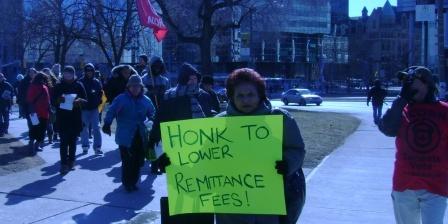
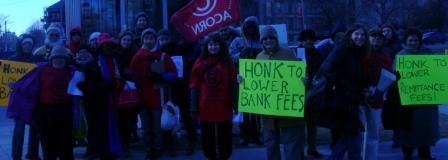
-
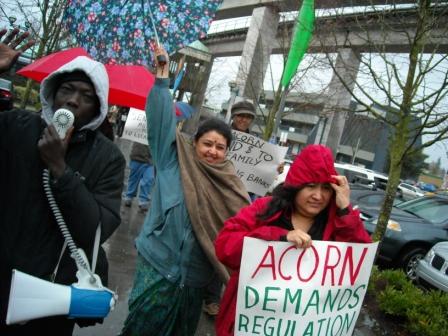
Progress made with demands in Vancouver, BC
13 Members braved the rain and storm and marched to meet the CEO of the Financial Institutions Commission (FICOM). They briefly met with Carolyn Rogers the CEO to set terms of future meetings.

